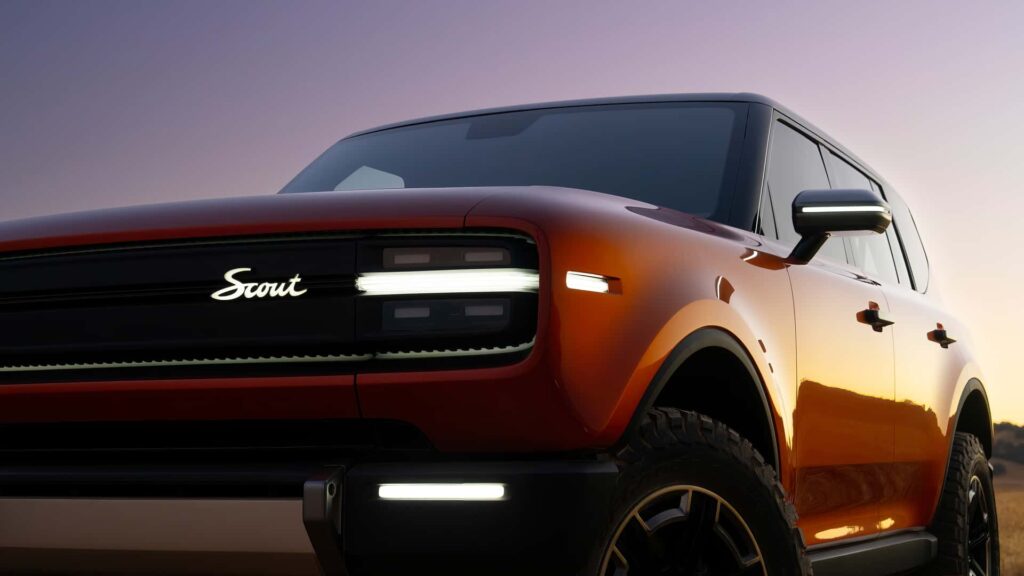Scout Motors CEO, Scott Keogh, has recently unveiled new details about the highly anticipated upcoming electric and range extender trucks from the brand. This revelation comes as a breath of fresh air for enthusiasts eagerly waiting for more information on these innovative vehicles. Keogh shared some key information during an appearance on a MotorTrend podcast, shedding light on the differences between the pure electric and extended-range powertrains that Scout Motors plans to offer.
One of the main highlights of Keogh’s revelation was the distinction between the pure EV and the EREV variants. The pure EV is expected to provide quicker acceleration and a battery capacity of around 120-130 kWh, promising a range of 350 miles on a single charge. On the other hand, the EREV will offer a combined range of over 500 miles, with a battery capacity of around 60-70 kWh. While the pure EV will excel in straight-line performance, with an estimated 0-60 mph time of 3.5 seconds, the EREV will be better suited for towing purposes.
Keogh also mentioned that the two versions will feature different battery chemistries, affecting their power outputs. The EREV is likely to utilize a more affordable lithium iron phosphate (LFP) battery, resulting in slightly less power, while the pure EV will opt for a nickel manganese cobalt battery for higher energy density and performance. Both variants will have a payload capacity of 2,000 pounds and similar tow ratings, making them versatile options for different driving needs.
Interestingly, Keogh revealed that the Traveller SUV is significantly more popular among early reservation holders than the Terra pickup, with over 70% of reservations being for the SUV body style. This preference reflects the growing demand for electric SUVs in the market and highlights the potential success of Scout Motors in this segment. Additionally, Keogh mentioned that over 50% of reservations are for the range extender models, indicating a strong interest in the extended-range powertrains offered by Scout Motors.
With production slated to begin in the fourth quarter of 2027 at a new $2 billion factory in South Carolina, Scout Motors is gearing up to revolutionize the electric vehicle market. The brand’s focus on offering both pure electric and extended-range options, along with localized supply chains and eligibility for the federal EV tax credit, positions it as a key player in the industry. As enthusiasts eagerly await the arrival of Scout Motors’ electric and range extender trucks, Keogh’s recent revelations have only added to the excitement surrounding the brand’s upcoming vehicles. Scout Motors, like many other companies in the automotive industry, is looking to shake up the traditional dealer model by selling vehicles directly to customers. However, they are facing pushback from dealers who are taking legal action to prevent them from bypassing the established system.
This is not a new phenomenon in the industry. Time and time again, companies have tried to disrupt the dealer model only to be met with resistance from dealers who see this as a threat to their livelihood. Dealers argue that direct sales from manufacturers undermine the current distribution system and could ultimately harm consumers by limiting their choices and driving up prices.
In the case of Scout Motors, they are determined to press on with their plans despite the legal challenges they are facing. They believe that selling directly to customers will allow them to offer a more personalized experience and better prices. By cutting out the middleman, they can control the entire sales process from start to finish.
While dealers may see this as a threat, it is clear that the traditional dealer model is ripe for disruption. With the rise of online shopping and e-commerce, consumers are increasingly looking for more convenient and streamlined ways to purchase goods and services. By selling directly to customers, companies like Scout Motors are responding to this shift in consumer behavior and offering a new way to buy vehicles.
It remains to be seen how the legal battles between Scout Motors and dealers will play out. But one thing is certain – the automotive industry is evolving, and companies that are willing to challenge the status quo are likely to succeed in the long run. Scout Motors is taking a bold step in this direction, and only time will tell if they are able to overcome the challenges they are facing and successfully sell vehicles directly to customers.

